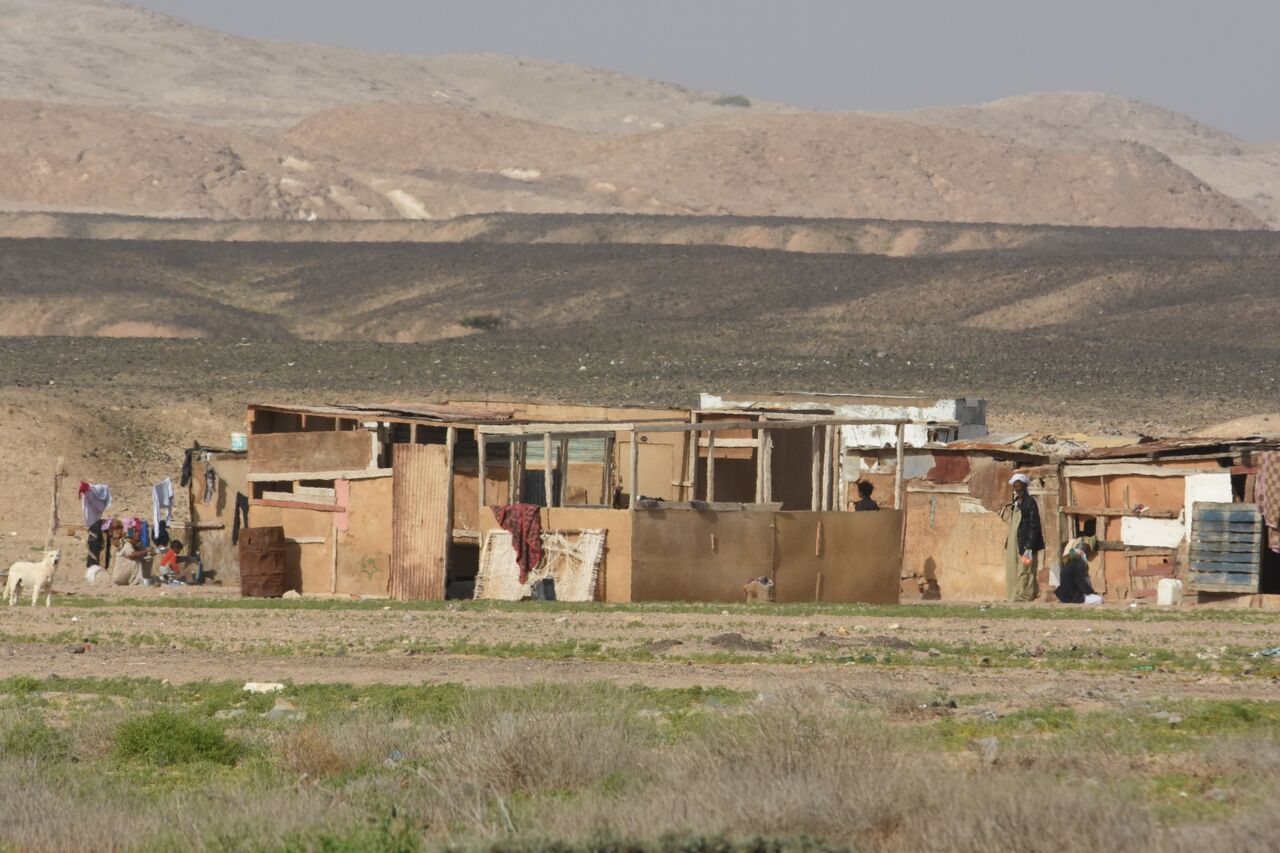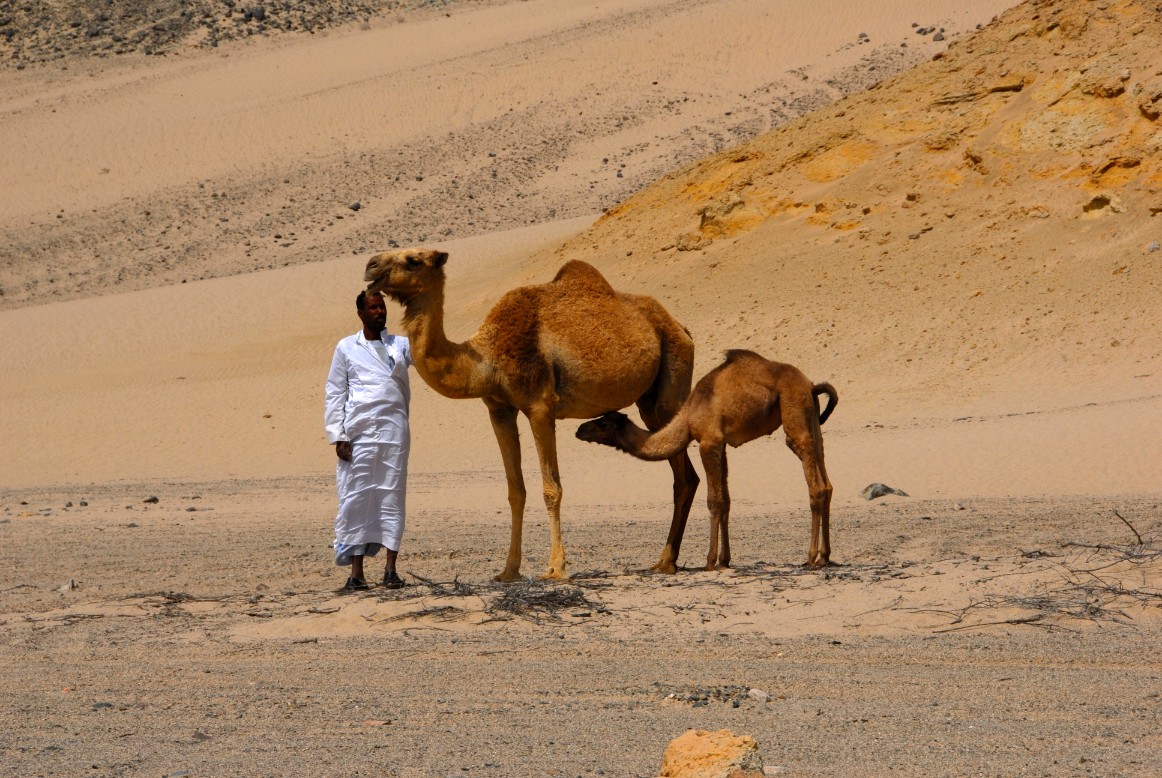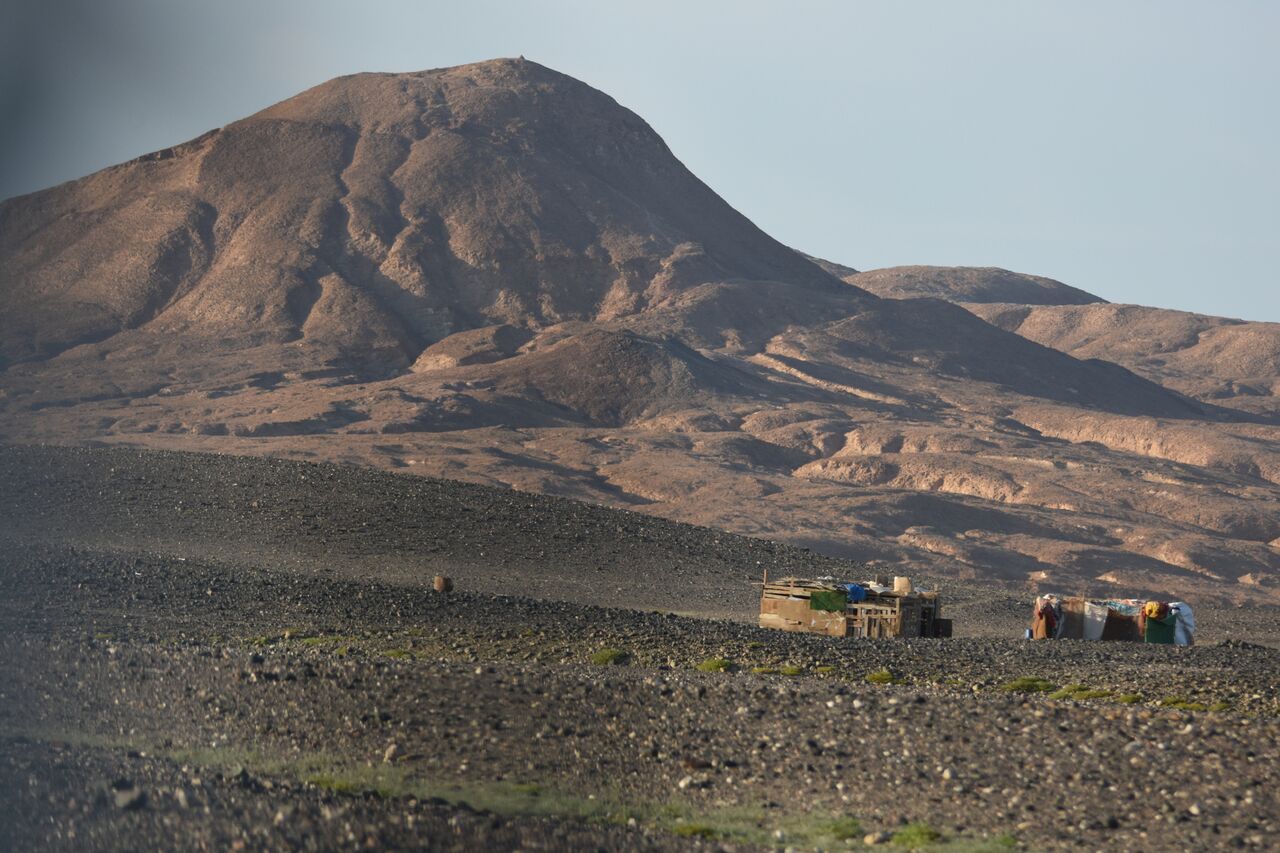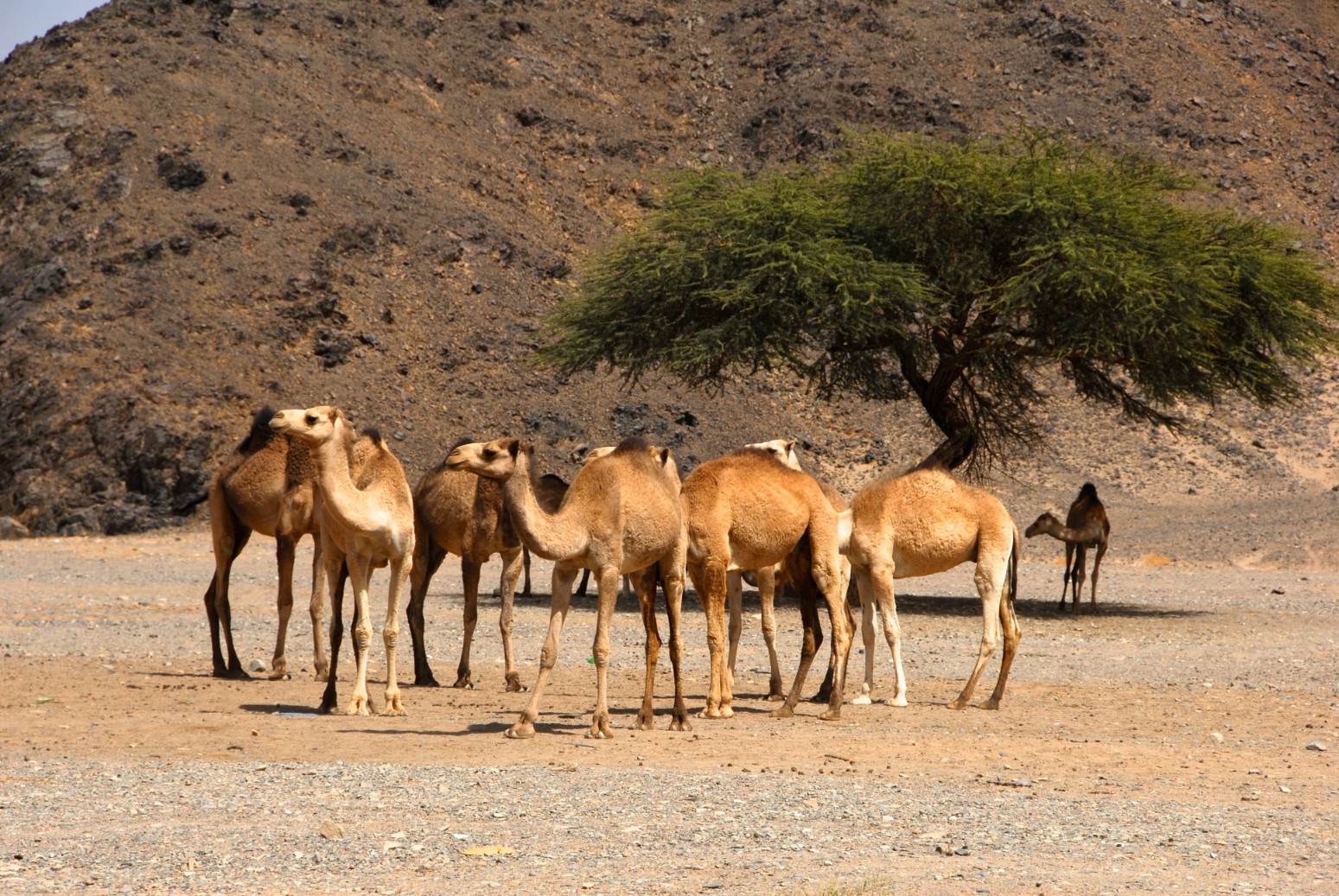Ababda are considered to be the native inhabitants of Wadi El-Gemal National Park. They have inhabited the Eastern Desert for many centuries now descending from the Begga tribe in Sudan. For hundreds of years, their camel caravans carried goods via the River Nile through the Red Sea Mountains to the Red Sea Coast. With each move they reproduced essential items such as tightly woven straw bowls for camel milk, braided leather hangers to keep food off the floor, and rugs made of camel hair. In recent years, development in the Southern Red Sea area has threatened the continuity of the rich cultural traditions of the Ababda way of life.

By: Gianni Bodini
Ababda Bedouins are known for their hospitality and good humor. They have their own traditions, habits, and cultures. They move through the desert with their herds of goats and sheep, and they are largely known for their nomadic lifestyle.

By: Gianni Bodini

By: Gianni Bodini
They travel from well to well with their camels loaded with water bags and portable huts looking for areas with recent rainfall and good pasture. Their core values come from the nature of their wandering lifestyle mostly rooted in: indifference towards material things, hospitality, and respect for nature, as well as self-sufficiency and tribal solidarity.

By: Gianni Bodini
Many Ababda now live in towns and villages in the Nile Valley and along the coast of the Red Sea driving in pick-up cars instead of riding camels. Others, who cling to the traditional way of life, still move through the desert and grazing remains their prime profession. They also trade products (mainly the charcoal they produce on a small scale, and some medicinal plants they collect).

By: Reem Labib

By: Gianni Bodini
